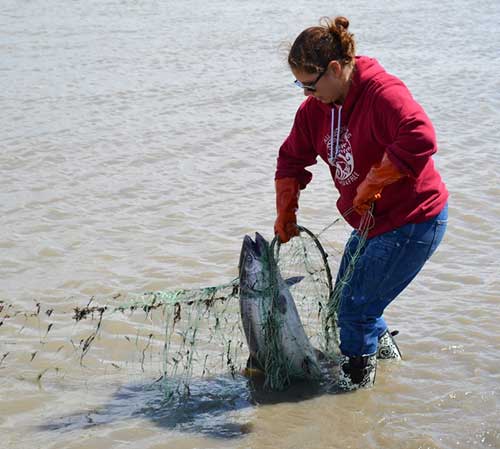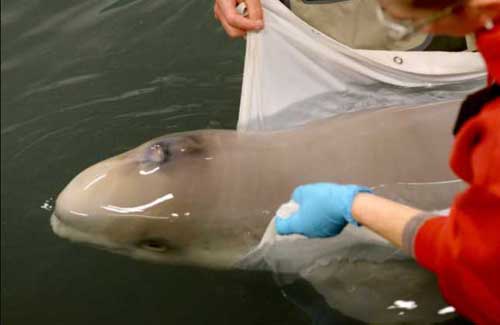With the beginning of the New Year comes a required change in foot-ware for freshwater anglers. Effective on January 1st, 2012, new regulations for freshwater anglers come into effect. As of that date, the use of felt-bottom waders are prohibited from use in freshwater streams throughout the state of Alaska.
The Alaska Board of Fisheries voted unanimously to prohibit their use as a preventative measure because of the threat to native species and the ecological stability of Alaska streams, and the potential economic and environmental threat to commercial, sport and subsistence fisheries.
Felt soled waders are an ideal vehicle for spreading tiny invasive species that can cause serious problems for freshwater streams. One such species of mudsnail, the New Zealand Mudsnail, has already spread throughout the Great Lakes region and the Pacific Northwest. The snail is assexual, meaning it does not need a mate to produce offspring. This species starves out the stream leaving no food for the lower food chain, this means no food for fish fry in the stream.
Another threat to Alaskan streams is “Rock Snot,” or Didymo. Didymo will form a thick mat over the bottom of a stream and smother it out. Although this organism is native to portions of Alaska, it has begun to spread quickly throughout the state through the use of felt soled waders.
Another invasive species that has come to Alaska through items such as felt soled waders is Myxobolus Cerebralis. This parasite infects salmon and trout and causes deformities in their skeletons. It also causes neurological damage. The infection causes the fish to swim in a corkscrew pattern. This makes feeding difficult and also increases the chances of the young fish to be eaten by predators because of its inability to flee efficiently. Instances of this infection has already been confirmed in South-central Alaskan streams.
Millions of dollars have been spent in other states such as Maryland, Vermont and Wyoming to counter the threat of invasive species in their freshwater systems and millions in lost revenue has also occurred not only in these states but throughout states in the lower 48.
More information on prevention and the spreading of aquatic invasive species can be found at websites such as https://cleananglingpledge.org and https://www.protectyourwaters.net.






